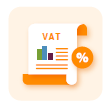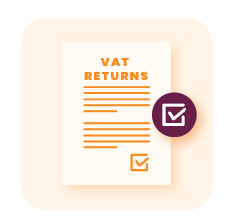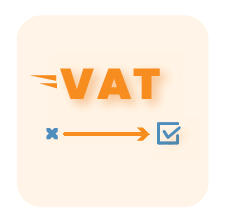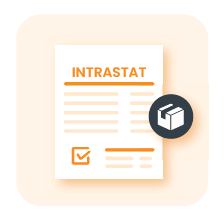Invoicing in The Netherlands
To reclaim input tax credit, Dutch businesses must generate a VAT invoice. Taxable entities are obligated to issue a VAT invoice for each provision of goods or services to other VAT-registered parties. The supplier or a designated representative, and occasionally the recipient, may issue these invoices, depending on the supply circumstances.
Learn more about Invoice requirements in the Netherlands in our comprehensive guide.
Selling in The Netherlands?
Simplified Invoicing
A Simplified invoice must contain:
- Date of issue.
- Supplier’s VAT identification number.
- Type of goods or services supplied.
- VAT amount payable – or the information needed to calculate it.
- A specific and unique reference to the original invoice and details that are changed (on a credit note, debit note, or any other document treated as an invoice).
A simplified VAT invoice can be used when the total amount of the invoice is 100 euros or less. Additionally, a modified invoice that explicitly refers to the original invoice may also be issued in a simplified format for VAT purposes.
Electronic Invoicing
In the Netherlands, the use of electronic invoices is authorized by Article 35b of the Dutch VAT Act. However, for business-to-government (B2G) transactions, electronic invoicing is compulsory under the Procurement Act of 2012.
For public entities, electronic invoices can be transmitted through various channels such as the PEPPOL network, third-party invoicing providers, Digipoort, or the Dutch government’s Logius platform. As for other recipients, electronic invoices can be sent using any practical method, and no validation or reporting criteria need to be met. Date of issue.
Supplier’s VAT identification number. Type of goods or services supplied.
Last Updated: 10/11/2023
Disclaimer
The information provided by Global VAT Compliance B.V. on this webpage is intended for general informational purposes only. Global VAT Compliance B.V. is not responsible for the accuracy of the information on these pages, and cannot be held liable for claims or losses deriving from the use of this information. If you wish to receive VAT related information please contact our experts at support@gvc.tax








